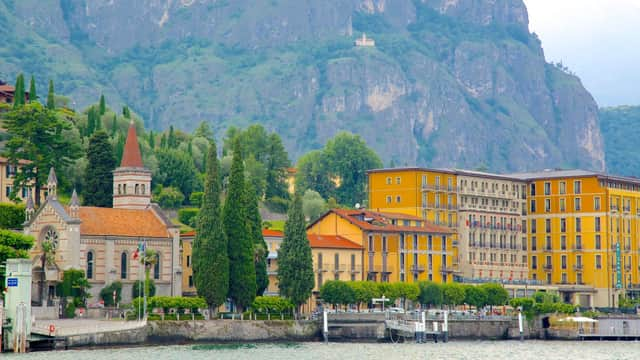Ian Ellis: Holidays at home or abroad are a time to set aside pressures of work and rediscover ourselves


Of course, for many the cost of living makes holidays very difficult to afford, if not impossible.
Some time ago I read that, increasingly, people are simply taking their breaks more locally, thus avoiding queues at airports, traffic jams, overly long drives, and saving on the cost.
It makes sense.
Advertisement
Hide AdAdvertisement
Hide AdHoliday, as a word, derives from the term 'holy day' and goes back to the time when the major festivals of the church were occasions when people would observe a day of exemption from labour and even from certain recreational activities.
Nowadays, people who are churchgoers often enjoy attending services where they are holidaying. I can remember on several holidays at Lake Como in northern Italy attending a beautiful English-speaking church right on the lake shore – a very scenic and tranquil place.
It was, and still is, the Anglican Church of the Ascension in Cadenabbia.
The Italian lakes are a group of lakes in the Alpine foothills. The best known ones are Como, Garda, Maggiore and Lugano, the last two of these being also partly in Switzerland.
Advertisement
Hide AdAdvertisement
Hide AdThey have long been a popular place to visit, going back to antiquity, but in the early nineteenth century they started to become a particularly popular holiday destination with the opening of the first hotel on the Lake Como in 1820, the Albergo della Cadenabbia, later becoming the Hotel Bellevue, and yet later the Grand Hotel Cadenabbia.
Cadenabbia's Church of the Ascension was built for English-speaking visitors and residents and has been a much loved place of worship since it opened in 1891.
Although for legal reasons actual marriages do not take place in the Church of the Ascension, Cadenabbia, it is a popular place for couples to receive a blessing on their marriage.
One great attraction, apart from the stunning scenery, is the fact that there are steamers and ferries criss-crossing the lakes, providing a wonderful way of visiting the coastal villages.
Advertisement
Hide AdAdvertisement
Hide AdJust a short trip across the lake from Cadenabbia is Bellagio, known as the “Pearl of Lake Como”.
Lake Como's outline on the map is like an upside-down Y, with Bellagio positioned at precisely in the middle.
Of course, everyone has their favourite holiday destinations, near or far, places to look forward to visiting.
It is certainly true that while many people take city breaks, most who can get away spend their summer holidays either at the sea or in the countryside.
Advertisement
Hide AdAdvertisement
Hide AdPerhaps there is something primordial in us human beings that drives us at least from time to time to the natural as opposed the urban environment.
I recall once seeing a sticker on the back of a camper van, which read 'Not everyone who wanders is lost'.
It struck me as quite profound.
What the sticker was saying, surely, was that it's good just to get out there into the natural world and, in wandering, simply immerse oneself in the wonderful natural environment, leaving behind all the busyness, deadlines and lists of things to be done without delay.
The motto on that camper van reminded me of the famous poem, 'Leisure', by W.H. Davies (1871-1940), which starts: “What is this life if, full of care, we have no time to stand and stare”.
Advertisement
Hide AdAdvertisement
Hide AdDavies, born and brought up in Wales, himself was quite a wanderer, or drifter, and chronicled his experiences drifting around North America in his 'Autobiography of a Super-Tramp'.
Was Davies lost? Perhaps it is best to see him as simply having wanted to experience more of life and adventure.
Indeed, not everyone who wanders is lost.
To be lost is not to know where one is or how to get to where one wants to go. It is an uncomfortable experience and being lost, in the everyday sense, also has spiritual parallels.
There are plenty of hymns that touch on the theme, not least the ever-popular 'Amazing Grace'.
Advertisement
Hide AdAdvertisement
Hide AdHolidays are a time when we can rediscover ourselves, seeing our everyday lives from outside their normal course, as it were.
Getting that perspective on life from a temporary detachment from the usual can make a great difference and can be particularly refreshing.
Yet, in his play, 'Henry IV, Part I', William Shakespeare could write: “If all the year were playing holidays, to sport would be as tedious as to work.”
Work can indeed be experienced in different ways. Some find it tedious, while others, who are undoubtedly more fortunate, find it fulfilling.
Advertisement
Hide AdAdvertisement
Hide AdA holiday is a time to set aside the pressures of work, but equally it can give time to think about one's work and what direction to take in it, what changes to make, how to do things differently, how to mend work relationships that may need some nurturing.
Whether or not a holiday has been possible, it is worth reminding ourselves that in Northern Ireland, and indeed in the island of Ireland as a whole, we live in a place that has its own incredible beauty.
Those of us for whom this is home have so much to enjoy on our doorsteps.
• Canon Ian Ellis is a former editor of The Church of Ireland Gazette